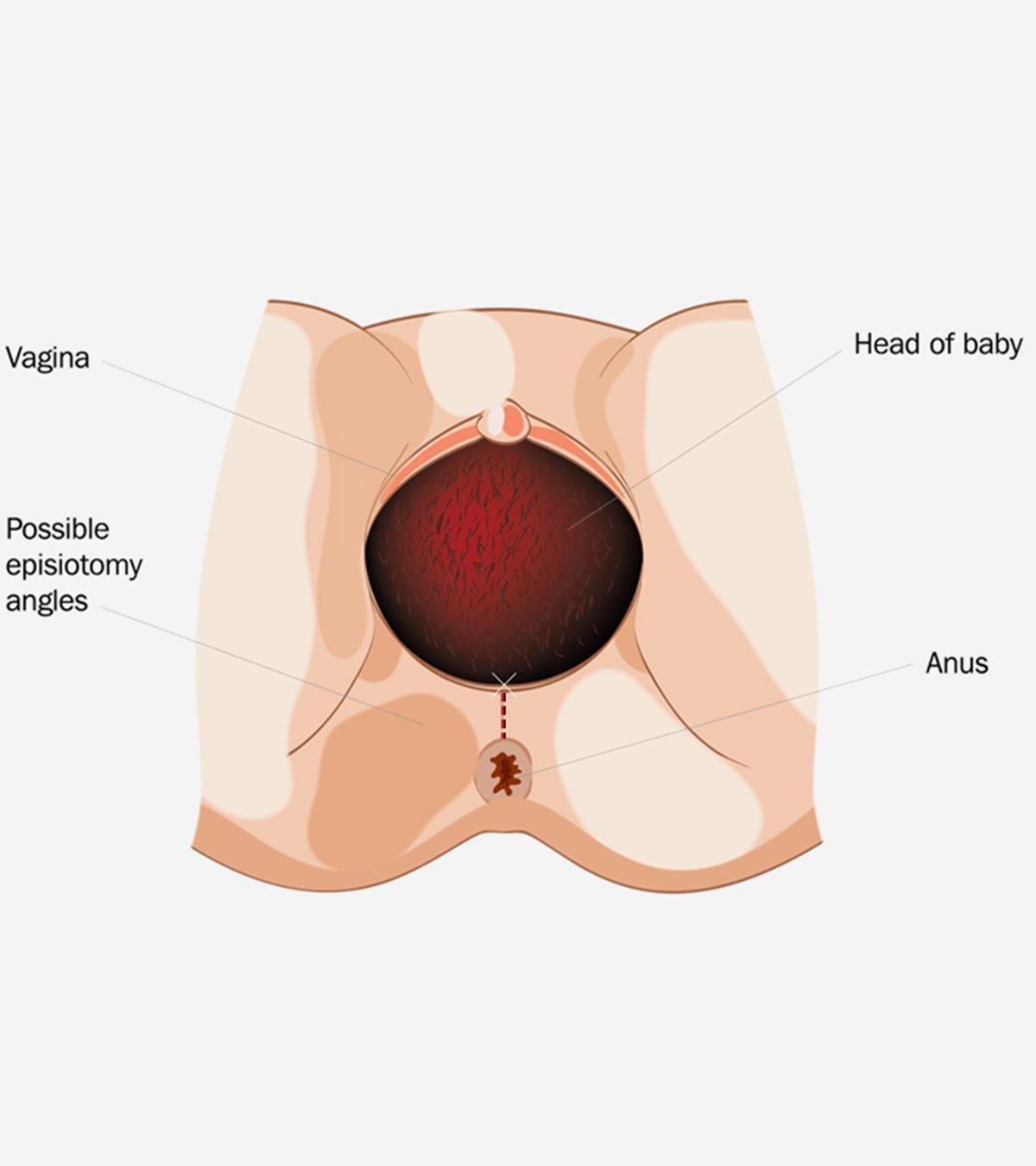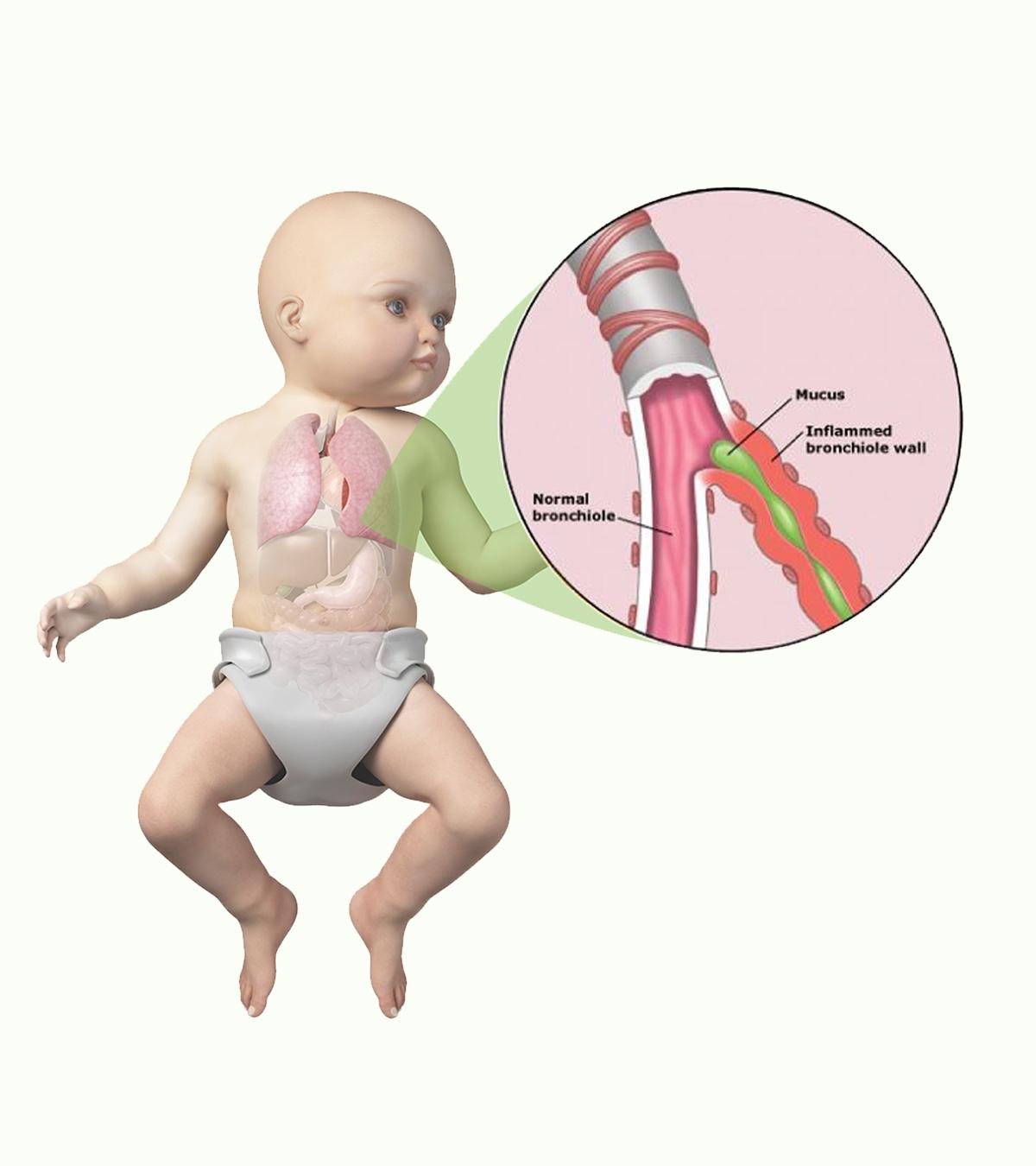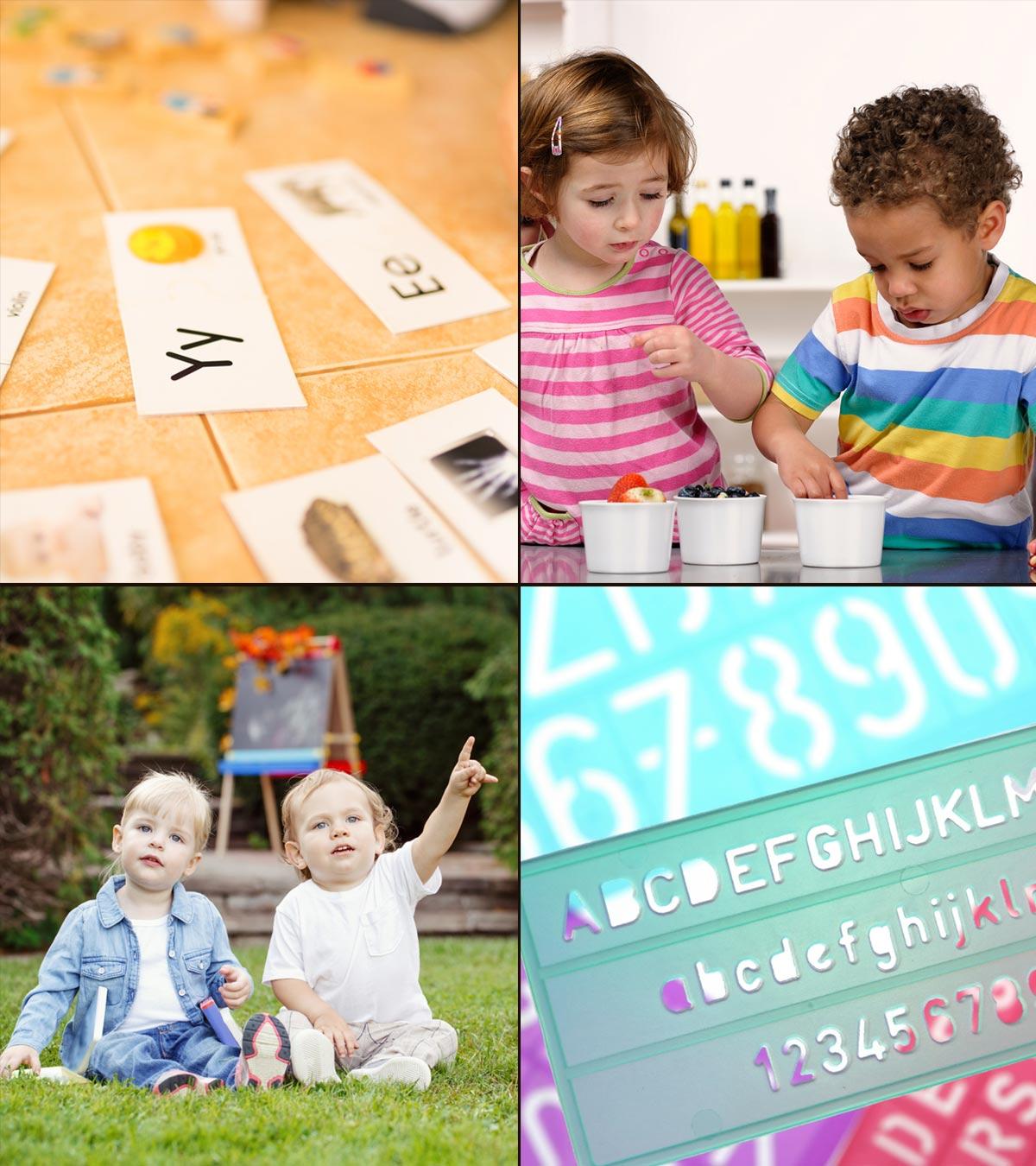
From the adorable gurgles and the coos to the goo-goo-ga-gas and ‘dada’ and ‘mama’, your baby will learn and use new words as she grows. Language development in children is a fascinating transition that you, as a parent, will enjoy.
It is also an aspect that you may have several questions about, for it plays a crucial part in your child’s overall development. In case you are wondering if your child is catching up with the language skills as she should for her age, Momjunction will help you with it. Here, we tell you about the stages of language development in children, issues associated with it and some tips.
Language Development In Children
The foundation for language development is laid during the first 12 months while the first three years of life are crucial for acquiring language and speaking abilities. These skills develop in an environment full of sights, sound, and exposure to others’ speech and language. Children younger than three years can better absorb the language, which makes exposing the child to language at this stage all the more important. Language development is closely connected with the number of words children hear spoken in their early months and years.
Infants communicate by crying when they need food, comfort, or the parent’s companionship. As they grow, they learn to listen and understand the sounds of the language and can express themselves in monosyllables, and eventually short, broken sentences. That said, the developmental stages and milestones may vary significantly from one child to another.
Keep reading to know more about the language developmental stages of children aged three and above.
Stages Of Language Acquisition In Children
The prelinguistic stage:
At this stage, babies learn how to communicate with others. Most babies begin to communicate with their parents or caretakers by the time they are 12 months old. By then, they understand most of what is being said to them and can express their needs by pointing to specific objects.
Please note that not all children follow the same sequence of skill development.
3-4 years:
At this age, children have a growing vocabulary and better understanding of the basic rules of grammar and may enjoy talking a lot.
Here are some more indicators of language development at this stage.
i. Quickly learns new words
ii. Uses plurals such as “dogs” but makes errors with tenses, such as “drawed” instead of “drew”.
iii. Three-year-old kids typically speak with language that makes sense to a stranger at least 75% of the time:
- form sentences with four or more words
- know and understand entire nursery rhymes
- Many. but not all, use pronouns correctly
iv.
A four-year-old child’s speech is typically fully intelligible, with a few incorrect usages here and there. Also, a child of four:
- uses longer and more complex sentences
- can narrate long stories with the correct sequence of events
- Is able to question; asks a lot of questions, and has intelligible speech, without many errors.
When your child is a preschooler, you can expect longer, more complex conversations with them.
5-8 years:
By five years of age, your kid will be speaking more grammatically correct sentences and has a larger vocabulary. By six, children may write simple stories and understand how sounds combine to make words.
i. By five, a child’s sentences are usually correct but may sometimes be grammatically incorrect.
ii. A five-year-old child:
- has a more extensive vocabulary
- can offer an opinion in discussions
iii.
By six years of age, children understand around 13,000 words.
iv. A six-year-old child uses all the pronouns correctly and understands opposites.
v. By seven, children understand 20,000 to 26,000 words and can recognize errors in other people’s speech.
vi. At eight, kids make very few errors in grammar. They can carry on meaningful conversations with adults and follow complex instructions, needing less or no repetition. They can read any age-appropriate text and write simple compositions.
These are the generic language milestones of growing children. However, some children might reach the milestones earlier and some later than normal. You do not have to worry as long as there is progress in their learning.
However, sometimes, if the child faces difficulty in understanding what others are telling them, and in expressing their thoughts or feelings through speech, it could be because of a language disorder.
While language disorders are a cause for concern, they are treatable too.
Language Disorders In Children
To develop language skills, a child must be able to hear, understand, and remember. The child should have the physical ability to structure speech as well. When that does not happen, it may be due to a developmental language disorder.
One out of twenty children shows symptoms of language disorder. One such language disorder is Specific Language Impairment or SLI which slows the child’s ability to learn a language and may impair his education.
Language disorders in children are different from speech disorders. A speech disorder is the inability of the child to make speech sounds. But in language disorder, children produce sounds, and their speech is intelligible.
Children with a language disorder face difficulty in understanding what others say (receptive language) or in expressing themselves (expressive language).
How To Spot Language Issues In Your Child?
Children with a receptive language disorder may have difficulty:
- understanding what others say
- following directions
- organizing their thoughts
Children with expressive language disorder face difficulty in expressing their thoughts and needs.
- Their sentences will be short and simple, and their word structure odd
- Have a considerably smaller vocabulary when compared to children of the same age
- Difficulty finding the right words and often use placeholder words like “um”, “ah”
- Use tenses improperly
- Use certain phrases repeatedly
Specific language impairment is one of the most common childhood learning disabilities.
- Children with SLI are often late to talk and may not produce sounds until three years of age.
- At three years they may speak, but unintelligibly.
- They have difficulty in using verbs, which is the hallmark of SLI.
- They ask questions without the usual do or be verb.
- Dropping the ‘s’ from the end of present-tense verbs is a common trait. “He ride the horse” instead of “He rides the horse”.
- Tends to miss the past tense- “He eat the cookie” instead of “He ate the cookie”.
Causes Of Language Disorder
Children develop language skills naturally if they have the abilities to form speech: see, hear, understand and remember. Sometimes, they are unable to develop these skills due to different reasons.
- Less exposure of the child to hearing a language on a daily basis. The greater the exposure to a language, the quicker the child can learn it.
- Some children face difficulty only with language development, while other developmental processes occur at a normal pace.
- The cause of expressive language disorder for many children is unknown. But sometimes, expressive language disorder can be due to a developmental impairment too.
- A receptive language disorder can happen due to genetic causes.
- Mixed language disorders may be caused due to a brain injury.
- Language disorders may happen in children with developmental problems, autism spectrum disorder, and hearing loss.
- One language disorder known as aphasia may happen due to damage to the central nervous system.
Your doctor would assess your child’s language development at all well-child visits and determine if further evaluation is indicated.
Diagnosis And Treatment Of Language Disorders
- The doctor will study the family’s medical history to know if the child’s family members had language disorders.
- The child may undergo consistent receptive and expressive language tests, conducted by a speech and language therapist.
- Audiometry, a hearing test, is also performed to detect deafness.
Treatment:
Speech and language therapy is the best way to treat a language disorder. Talk therapy or counseling may also be recommended as challenges with communication may be associated with behavioral and emotional difficulties.
How To Help Your Child: Tips And Activities For Language Development
Here are a few tips that can help your child speak confidently.
- Talk to your child: Talk as much as you can to the child about general things. Start a conversation by asking questions such as, “Now we’re going to take a walk outside. Do you see those birds flying? Do you smell the lovely flowers?”
- Read out to the child: It is never too early to read to your child. You may start with board books and then move to picture books and short stories as your child grows.
- Avoid using television or computers: Limit exposure of young children to computers and television.. Kids need to listen and interact to develop speech, which doesn’t happen when they watch excessive TV.
- Go outdoors: A trip to the park, museum or a sanctuary will open up a whole new world to your child. The more they are exposed to the outside world, the more curious they get and ask questions. You can also encourage them to share their experiences by talking about the outing.
- Be a good model: Face your child and speak to them clearly and slowly. If they say something wrong, do not reprimand them but correct them by repeating the word correctly. This way, your child will know the correct way to pronounce a word and learn.
- Remember your language level: When using words or sentences that your child may not understand, explain what they mean.
- Follow their lead: If they start a conversation, let them speak and explain. Praise for taking initiative can also build their self-confidence.
- Speak and repeat: If your kid pronounces a word successfully, repeat that word a few times in a sentence to help your child understand it better.
- Picture books: Get some simple picture books for your child and help them pronounce simple words like ball, tree, etc. Look at a book together and talk about a picture.
- Introduce new words. Even if your child doesn’t understand v eentually, they will learn the right usage of the word.
- Encourage them to narrate their experiences happening: Make every opportunity a language learning activity. If you’re out in a park and find something that excites your child, describe it to them.
- Sing songs and rhymes: Songs and rhymes have both rhythm and words, which helps children pick up words faster.
If you live in a place where multiple languages are spoken, you may want to try more than one language at a time.
Does Speaking Two Languages Increase The Risk Of Speech And Language Disorders?
No. In the past, parents were asked to refrain from speaking dual languages believing that it might interfere with the child’s ability to grasp a language. It was also believed that the language that is most dominant in a child’s growing environment is the one that the child learns faster and better. However, there is no scientific backing to such assumptions. Many young children grow up hearing two or more languages and can learn them easily.
Frequently Asked Questions
1. What is the critical period for language development?
According to Lenneberg’s theory, the critical period for language development begins at the age of two years and ends in puberty (1).
2. What brain areas are involved in language processing and speech in children?
Broca’s area in the left hemisphere of the brain, Wernicke’s area connected to Broca’s area via the neural pathway, and angular gyrus are the brain structures responsible for language processing and speech development (2).
3. How can I tell if my child has a language problem or is simply a “late bloomer”?
Even if your child is a “late bloomer” (or late talker), you can see them using gestures, hear them occasionally say new words, and they understand what others are saying. However, if your child does not use new words or understand language, this could indicate that he or she has a language disorder (3).
4. What happens if a child is not exposed to language?
If a child is not exposed to language, a condition known as language deprivation, it can have a negative impact on language acquisition as well as long-term neurological development and behavioral health concerns (4).
Language development in children is seen through several stages. It takes time and effort to grasp a language and build complete sentences. However, it is an exciting transition for parents to witness. But if you think that your child has difficulty understanding what others are saying or if they are having trouble expressing their thoughts, there may be a language or developmental issue. It can be due to a lack of exposure to a language or the central nervous system issues. Therefore, you must visit a child specialist to understand the condition and promote language development.
References
- Naama Friedmann and Dana Rusou; (2015); Critical period for first language: the crucial role of language input during the first year of life.
https://cbcd.bbk.ac.uk/sites/default/files/cbcd/files/interlearn/FriedmannRusou_criticalPeriodLanguage_curOpNeurobi15.pdf - Speech & Language.
https://memory.ucsf.edu/symptoms/speech-language - Late Blooming or Language Problem?
https://www.asha.org/public/speech/disorders/late-blooming-or-language-problem/ - Wyatte C. Hall, et al.; (2017); Language Deprivation Syndrome: A Possible Neurodevelopmental Disorder with Sociocultural Origins.
https://www.ncbi.nlm.nih.gov/pmc/articles/PMC5469702/
Community Experiences
Join the conversation and become a part of our nurturing community! Share your stories, experiences, and insights to connect with fellow parents.
Read full bio of Claudia M. Gold
Read full bio of Sagari Gongala















